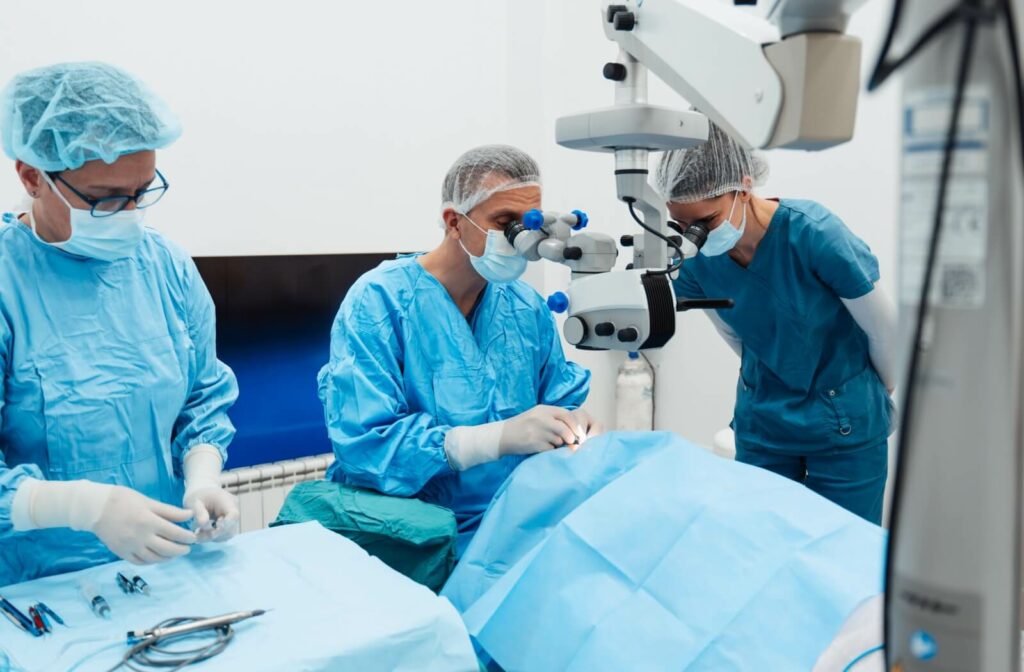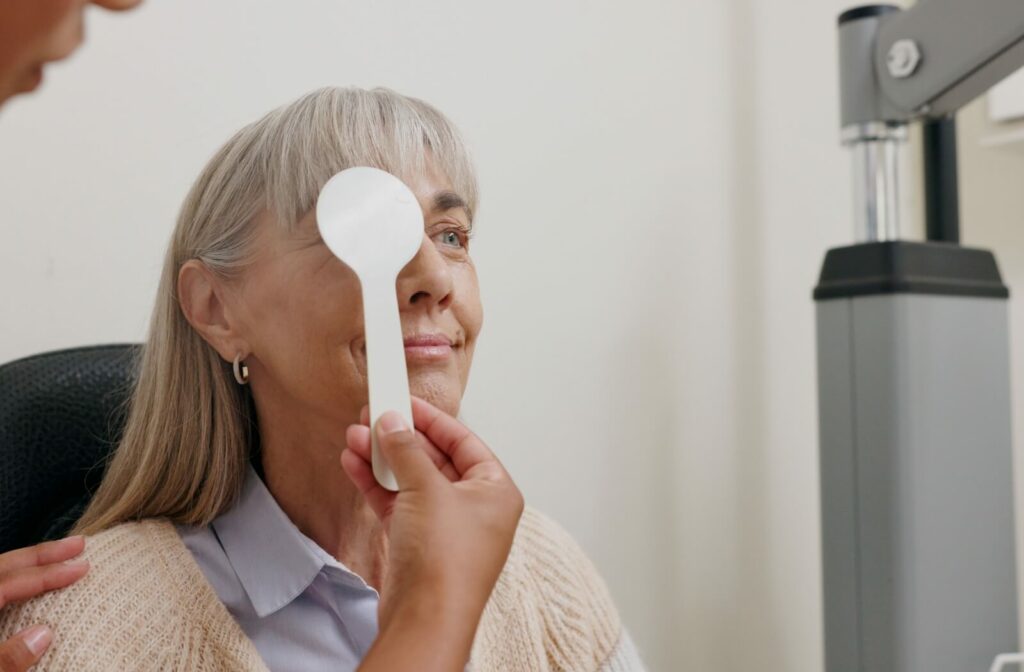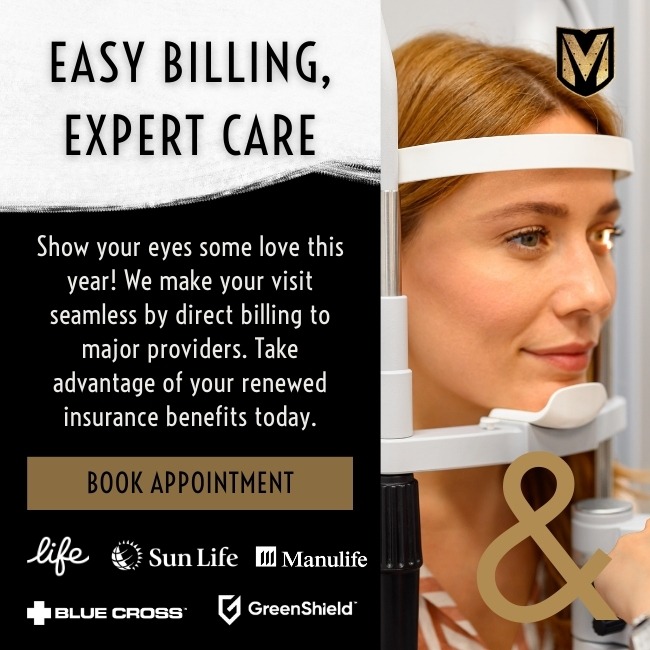Cataracts are one of the most common vision-related issues among older adults. While they develop gradually, the early signs can subtly but significantly impact daily life. The first and most common sign of cataracts is blurry or cloudy vision. However, cataracts also cause sensitivity to light and glare, difficulty seeing at night, a reduction in colour vibrance, and, in some cases, double vision in one eye.
Understanding cataracts and their causes and identifying the first signs can help you take the necessary steps, such as wearing UV protection or laser eye surgery, to protect your vision and maintain your quality of life.
What Are Cataracts?
A cataract is a clouding of the eye’s natural lens, which lies behind the iris and pupil. The lens is essential in focusing light onto the retina at the back of the eye, allowing us to see clearly. When a cataract forms, it prevents light from passing through the lens as effectively, resulting in blurry or distorted vision.
Cataracts typically develop slowly as people age. While most cataracts are age-related, other factors, such as genetics, eye injuries, steroid use and diseases can also contribute to their formation.
Types of Cataracts
There are several types of cataracts, including:
- Nuclear Cataracts (affects the central portion of the lens)
- Cortical Cataracts (develop on the outer edges of the lens)
- Posterior Subcapsular Cataracts (forms near the back of the lens)
Identifying the type of cataract is crucial for determining the most appropriate treatment plan.
What Causes Cataracts?
The leading cause of cataracts is age-related changes to the proteins within the lens. Over time, these proteins break down and clump together, creating the cloudiness associated with cataracts.
Here are some common factors that can increase your risk:
- Age: Cataracts often begin developing in your 40s or 50s, but they may not affect vision until age 60.
- Sun exposure: Prolonged exposure to UV radiation without eye protection can contribute to cataract formation.
- Medical conditions: Certain health issues, such as diabetes, increase the likelihood of cataracts.
- Lifestyle choices: Smoking, excessive alcohol consumption, and a poor diet can accelerate the development of cataracts.
Eye Injuries or previous surgeries may also lead to the earlier onset of cataracts. You can slow their progress by leading a healthy lifestyle and protecting your eyes with UV-blocking lenses.
How Do I Tell if I Have Cataracts?
One of the most crucial steps toward maintaining eye health is recognizing the early signs of cataracts. The first symptom many notice is blurry or foggy vision, as though they are looking through a frosted window. This can occur in one or both eyes.
Additional symptoms to watch for include:
- Halos around lights: Seeing halos or glares, especially at night, can make driving difficult.
- Sensitivity to light: Cataracts can make your eyes more sensitive to bright lights.
- Fading or yellowed colours: Colours may appear less vibrant or yellow-tinted over time.
- Double vision in one eye: Double vision can occur as cataracts distort light processing.
- Frequent prescription changes: Requiring new prescription glasses more often could indicate worsening cataracts.
If you experience any of the above symptoms, you should book a comprehensive examination with an eye care professional.
What to Do If You Have Cataracts
The first step in addressing cataracts is visiting your optometrist for a diagnosis. During your eye exam, we will dilate your eyes to examine the lens and determine the severity of the cataracts. Our doctors also can use a special camera to take a picture of your cataracts so they can determine how fast the cataracts are changing and to help you understand what is happening.
Depending on the stage of development, we may recommend one or more of the following:
- Monitoring cataracts: If they haven’t significantly affected your vision, we may suggest regular follow-ups to track their progression.
- Lifestyle adjustments: Improvements in lighting, using prescription glasses catered to your new needs, or wearing anti-glare lenses can help manage symptoms for milder cases.
- Preparing for surgery: Surgery may be recommended if cataracts severely affect your quality of life.
Is Cataract Surgery Safe?
Cataract surgery is one of the most common and safest medical procedures today. Its success rate is over 98%, and most people experience significantly improved vision after the procedure.

What to Expect from Cataract Surgery
Cataract surgery is typically an outpatient procedure that takes 15 to 20 minutes per eye. During the surgery:
- A tiny incision is made in the eye.
- The clouded lens is often removed via ultrasound waves that break it into smaller pieces.
- A clear, artificial (intraocular) lens is implanted to replace the natural lens.
The result is clearer vision and, in many cases, a reduced dependency on glasses or contacts.
Tips for Recovering from Cataract Surgery
Most patients recover quickly, but following your healthcare professional’s instructions closely is essential to ensure the best outcome. Here are some tips for a smooth recovery:
- Rest your eyes: Avoid strenuous activities and give your eyes time to heal.
- Use eye drops: We will prescribe medicated drops to prevent infections and reduce inflammation.
- Avoid water in your eyes: Be cautious when showering and avoid swimming until cleared by your doctor.
- Wear protective eyewear: Sunglasses can shield your eyes from sunlight and dust.
- Attend follow-up visits: Regular check-ups ensure your eyes heal correctly and your new lens works as expected.
Most people can return to regular activities within a few days, but full recovery can take 4-6 weeks.
Restoring Clear Vision with Confidence
Cataracts can feel daunting, but early detection and modern treatments make them highly manageable.
At Milton Vision & Sports Vision Training Centre, we can help you closely monitor changes in your vision, schedule regular exams, and explore safe and effective surgical options that can significantly improve your overall quality of life. Contact us today to book an appointment to take proactive steps to protect your vision.



